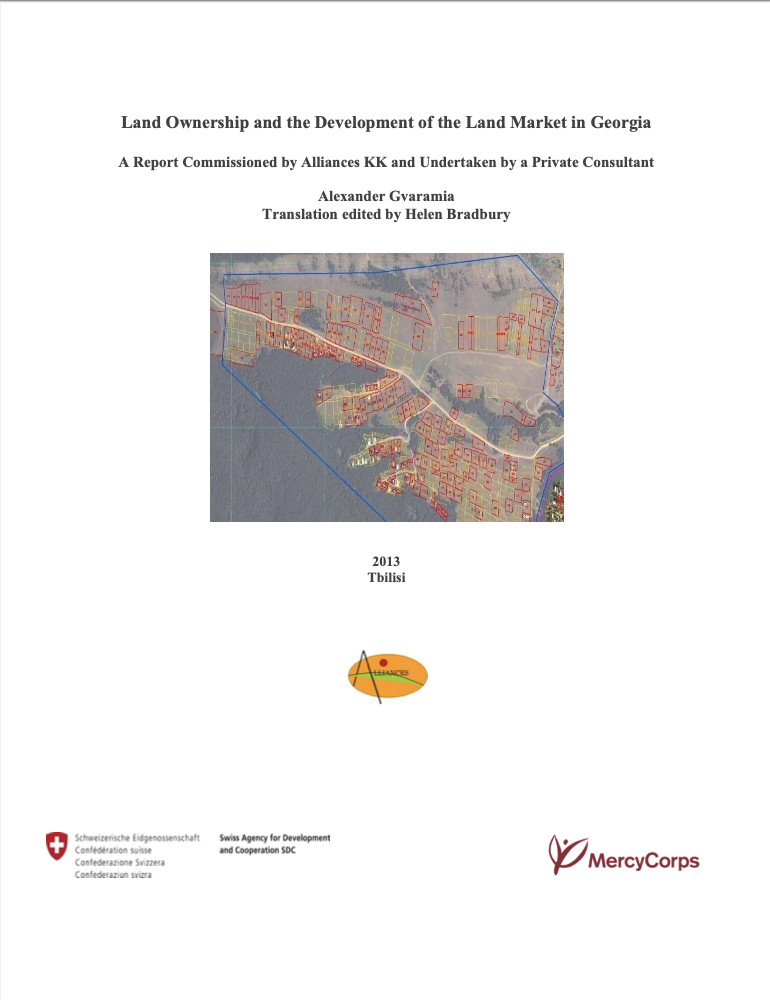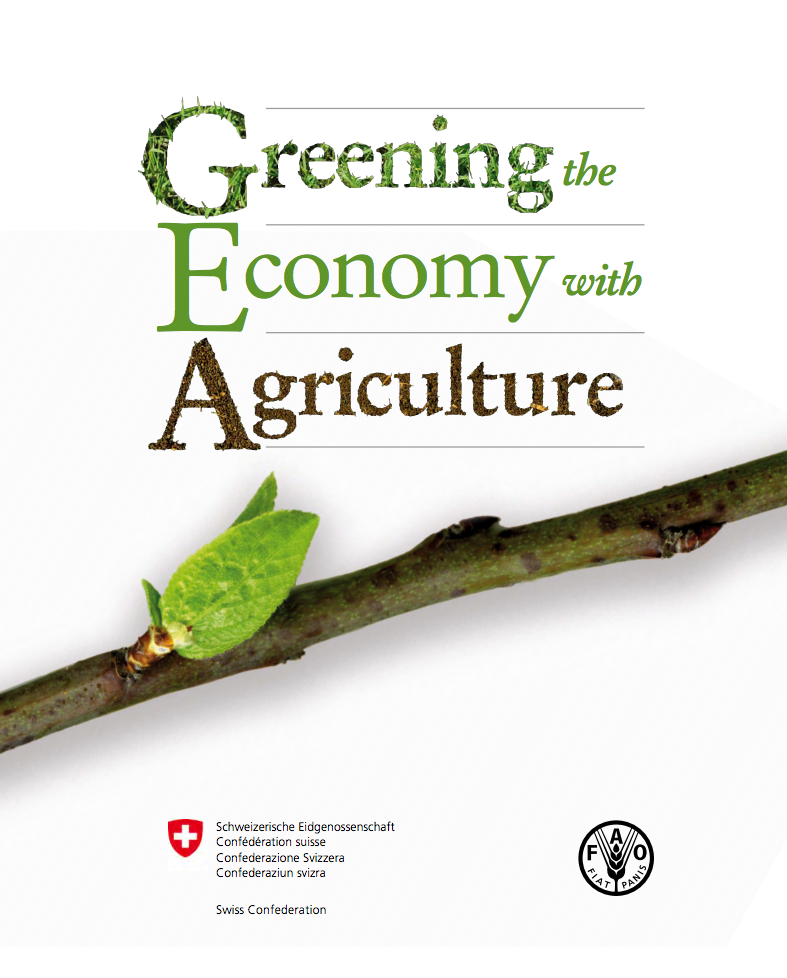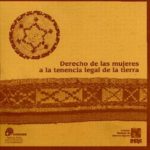Location
The Swiss Agency for Development and Cooperation (SDC) is Switzerland’s international cooperation agency within the Federal Department of Foreign Affairs (FDFA). In operating with other federal offices concerned, SDC is responsible for the overall coordination of development activities and cooperation with Eastern Europe, as well as for the humanitarian aid delivered by the Swiss Confederation.
The goal of development cooperation is that of reducing poverty. It is meant to foster economic self-reliance and state autonomy, to contribute to the improvement of production conditions, to help in finding solutions to environmental problems, and to provide better access to education and basic healthcare services.
Members:
Resources
Displaying 11 - 15 of 16Land Ownership and the Development of the Land Market in Georgia
This report was produced by a private consultant Alexander Gvaramia a legal expert on land laws and issues and a member of the Swiss Development Cooperation funded Mercy Corps Georgia implemented Alliances Kvemo Kartli Programme, Helen Bradbury, a market development programme working in the dairy, beef and sheep value chains in Dmanisi, Tetritskaro and Tsalka municipalities of Kevmo Kartli. The International Centre for Conflict Negotiation (ICCN) a partner of Alliances KK was responsible for facilitating the concept and production of the report.
Greening the Economy with Agriculture
The United Nations General Assembly (UNGA), through Resolution 64/236 of 24 December 2009, decided to organize the United Nations Conference on Sustainable Development, Rio de Janeiro, 3 to 6 June 2012 (UNCSD, also referred to as Rio+20). The two main stated themes decided by the UNGA for UNCSD are: a green economy in the context of sustainable development and poverty eradication; and the institutional framework for sustainable development. The preparatory process foresees three sessions of the preparatory Committee and three inter-sessional meetings.
Water, land and people: a learning initiative implemented in Bolivia, Mali and India
This document reports on findings from learning groups relating to water management in Bolivia, India and Mali during 2005-2006. The groups analysed specific topics with the aim of improving the current and future development strategies of Integrated Water Resource Management (IWRM). In each of the three countries, the learning group identified key topics to address – equity, empowerment and environmental sustainability were identified as cross-cutting issues.
Derecho de las mujeres a la tenencia legal de la tierra
La seguridad jurídica de las tierras trabajadas por mujeres y hombres, es el primer paso para la construcción del futuro de miles de familias de bolivianas y bolivianos del área rural.
Derecho de las mujeres a la tenencia legal de la tierra
La seguridad jurídica de las tierras trabajadas por mujeres y hombres, es el primer paso para la construcción del futuro de miles de familias de bolivianas y bolivianos del área rural.





